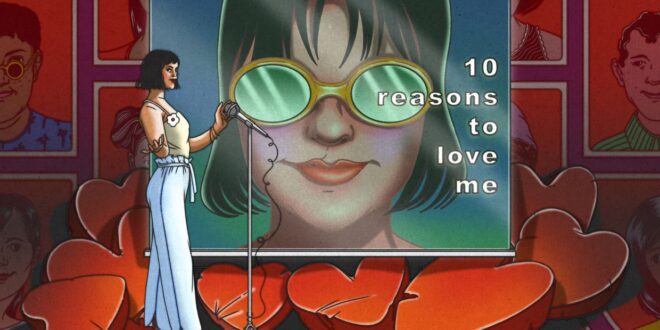In the spring of 2014, Dan Perino, a New York actor, plastered “looking for a girlfriend” flyers all over the city. “Just tired of the singles scene and hoping to meet the right person,” it said, along with his picture and phone number.
At the time, Perino was one of the few people to take such a public approach in seeking a relationship. He recently reposted the flyers, though now it seems that he’s one of many looking for love in this way.
Noticing a rise in analogue dating techniques, Danielle Dietzek and Julie Griggs, the founders of Fourplay, an app where single friends team up, match with other pairs of single friends and go on double dates, recently started a marketing campaign with flyers that resemble personal ads.
The flyers were strategically placed throughout New York City, in Greenpoint, Murray Hill, Williamsburg, the East Village, West Village, Lower East Side, Upper East Side and in Hoboken, New Jersey. They included trackable QR codes that linked back to the app store where you could download Fourplay. In the past week, the flyers have been scanned nearly 450 times, indicating a shift in how singles are looking to connect.
But it’s not just flyers.
In Philadelphia, David Cline, a 28-year-old data manager, made a “Dave is single” billboard and corresponding Instagram account as a new kind of dating profile. Initially intending it to be a goofy experiment, Cline has found the influx of responses, with nearly 500 people reaching out, to be a welcome change from the dearth of replies on dating apps.
This summer, one of them came from Danya Trommer, a comedian who works in advertising. Trommer, formerly of Boston, saw Cline’s billboard in a Facebook post just a few weeks before moving to Philadelphia and was intrigued. “I went on Dave’s profile and his latest post was about Mega Man Battle Network, which is such a niche video game,” she said.
She recalled thinking, “I’ve got to talk to this guy.”
Trommer has never been a dating app fan, preferring to meet people more organically. “Apps really just gamify the entire process and make it pretty weird if you’re looking for actual connection,” she said. While not in the market for a relationship, she figured there was nothing to lose by reaching out to a “random guy on a billboard”.
She and Cline talked for a month before going on a date, after which they decided to remain friends.
These public encounters seem to illustrate something larger happening in dating culture. Enter the “pitch me” movement, which includes the rise of dating business cards, Google Forms and various pitch-dating events.
With live shows first in San Francisco and now in New York, Tinder Disrupt features people giving PowerPoint presentations about a single friend. Participants entertain the audience with lighthearted, funny performances. Their presentations often use bullet points, charts, graphics, pictures and effects that highlight the friend’s best assets.
Rose Oser, the host and creator of Tinder Disrupt, which is not officially affiliated with Tinder, said the shows – totaling 50 since 2016 – have been highly successful. Each show has around 100 attendees, with an estimated 5,000 audience members. Oser estimates that around 95% of participants get phone numbers from audience members or exchange Instagram handles.
While many of those pitched onstage have received date requests, some have even started long-term relationships, she said. There have even been two marriages and one Tinder Disrupt baby, Oser said. In New York and San Francisco, she has recently started a new show around poly dating called Poly Poly Oxen Free, in which someone’s partner pitches them to the crowd.
A year ago at a New York Tinder Disrupt, Ryan Alt, a 39-year-old director of operations in the software industry, got several phone numbers after the show and went on a few dates with someone, though they didn’t lead to anything serious. But, he said, “I now have a ready-made elevator pitch for new prospective partners.” And participating in the show made him feel like part of a fun community.
“I’ve tried the dating apps and I just can’t seem to get over the online shopping vibe it gives me,” he said, “and so I thought going to an event like this would encourage a more organic meeting of potential romantic partners.”
Haley Godbold, a 28-year-old high school teacher in the Bay Area, had no expectations of finding a meaningful connection when she participated in Tinder Disrupt in San Francisco in 2019. After the show, she gave out her number to about 10 people and received a “million” compliments.
“It was funny that everyone in the audience knew quite a bit about me, but I knew nothing about them,” she said, adding that it was a great opportunity for conversation.
Godbold did find genuine love through the event. “We were together for four years and it was one of the healthiest relationships of my life,” she said.
Though the couple are not together anymore, Godbold said, she always enjoys telling the story of how they met.
Although not all participants make meaningful connections, many say the show has helped them gain confidence and reignited their desire to put themselves out there. Other similar events have recently popped up in Florida and Mexico.
The pitch-me approach is becoming increasingly common, in many cases because of daters’ sheer frustration.
Jaime Bernstein, the vice president for client experience at the matchmaker company Three Day Rule, recalled a client who made business cards and carried them everywhere. One side of the card said, “Romantic, witty, world traveler seeking active family/friend-oriented, adventure partner,” and the other side had her contact info with an email address created just for this purpose. (The cards haven’t yet resulted in dates, she said.)
Handing out “in the business of dating cards” sparks the fun in dating, said Kara Laricks, a senior matchmaker at Three Day Rule. It also shows that you’ve put some thought into your search, which is better than sending another “hey” message on a dating app, she said.
Clips of young people handing out “dating cards” or “call me cards” have been spreading over social media. On TikTok, users have also begun sharing “date me applications,” created using Google forms.
Zoe Butler, a 26-year-old musician, said she received around 500 responses after sharing her application form online.
Cline, who opted for the billboard, understands why people are willing to try new things when it comes to dating. “It’s frustrating and depressing to see people in your life seemingly find a partner easily,” he said. “When you try really hard to put yourself out there and meet people, only to find failure, it can make it feel like you’re unlovable.”
Most people, Cline added, “want to know that they’re normal, good looking, and that dating apps are really just a bad place right now.”
Blaine Anderson, a dating coach in Austin, Texas, still recommends dating apps to her clients. But she has also seen rising interest in dating running clubs, matchmaking and singles events, as people expand beyond the apps. These activities may help people feel a little less awkward about approaching someone, she said.
Why the shift? “While the apps were enhancing connection in the way that people were meeting people that they wouldn’t have otherwise met, over time they have decreased connection and they’ve continued to add to loneliness and isolation,” said Rachel Wright, a relationship therapist in New York. She added that dating apps run on algorithms that try to keep you on them.
But shifting to the pitch-dating mode typically requires a lot more courage than just signing up for an app, Bernstein said. “I think daters are at a point now where they feel if they really want to prioritise dating, they have to get brave and creative,” she said.
Anderson agreed. “Twenty years ago,” she said, “you probably would have been mocked for making a ‘pitch me’ PowerPoint, assuming you could even find anyone to watch it.”
For Tinder Disrupt participants, Oser said: “It’s not just, ‘I want a cute nice guy to date my friend Beth.’ It’s more like, ‘Beth ideally wants to date a trauma-informed Capricorn who shares her passion for musical theater and sourdough bread’.”
When a friend pitches you, the audience can see your friend’s love and what makes you shine, Oser said. “I always tell the presenters,” she added, “if you really love on your friend, the audience will too.” – The New York Times
 BeritaKini.biz Berita Viral Terkini di Malaysia
BeritaKini.biz Berita Viral Terkini di Malaysia





